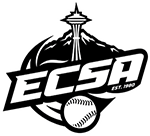ECSA Matchmaker › Forums › Tournaments › What They Won’t Tell You About Websites for Music
- This topic is empty.
-
AuthorPosts
-
-
jane04r229632
GuestThe act of acquiring complimentary finding mp3 download music is a widespread phenomenon in the online period, offering listeners a seemingly unrestricted gateway to a universe of music. This method to music consumption is driven by a powerful promise: the ability to amass a individual archive without any monetary cost. For many, particularly those with limited budgets or a desire to explore new musicians without commitment, the allure is understandable. Yet, this landscape is multifaceted, filled with both substantial benefits and important drawbacks that every user should carefully evaluate.
At first glance, the primary benefit of downloading no-cost MP3s is clear: financial savings. It removes the requirement of a monthly payment to a platform and the individual cost of purchasing music from online stores. This democratizes music for everyone from young people to individuals in areas with less disposable income. It allows for the exploration of huge quantities of music from lesser-known styles and unsigned creators who might not be featured on major platforms. Additionally, similar to owned MP3s, downloaded files are possessed permanently, sorted meticulously, and enjoyed without an internet connection, providing a level of independence and permanence that streaming solutions do not match.
On the other hand, the sourcing of complimentary MP3s often enters a legal ambiguous territory. A significant portion of the content offered on certain platforms is distributed without the the direct authorization of the artists and labels. Downloading music from these sources constitutes copyright infringement, a violation of the legal rights that denies creators, composers, engineers, and all other contributors of their rightful compensation. This is not a victimless act; the collective impact of mass piracy can negatively impact an artist’s capacity to earn a living, finance future project, and continue in their profession. Apart from the moral implications, these websites can pose significant security risks. They are known for packaging files with malware, tracking software, and other adware that can damage your computer and steal your personal information.
The audio fidelity of no-cost MP3s is another significant factor. Tracks found on unregulated platforms are frequently encoded at extremely poor bitrates, producing a muffled and compressed listening experience devoid of the clarity and richness of the master recording. Variable volume levels between various files and incorrect or missing ID3 tags like creator, title, and year details are additionally typical issues, creating a frustrating experience when attempting to organize a substantial library. Moreover, there is a complete lack of assurance of file integrity; a song might be cut short, corrupted, or worse, be a mislabeled file entirely.
For those who want to access music through authorized channels with no a direct cost, a number of ethical options are available. Many up-and-coming and established musicians release complimentary tracks on their personal social media or on services like SoundCloud as a marketing tool to build their audience. Platforms like the Internet Archive provide a vast collection of freely available audio, including historical recordings, audio shows, and rights-free compositions. Additionally, local library memberships increasingly provide complimentary access to music services like Freegal with a active library card, allowing users to lawfully download a limited amount of MP3s each month that theirs to own. These types of avenues provide a way to build a library while still supporting the rights of creators.
Ultimately, the world of no-cost MP3 music is a domain of opposing forces. It offers unparalleled access and monetary savings but is frequently predicated on a foundation of legal infringement and possible security risk. The inferior audio quality and lack of trustworthy information additionally detract from the value for the critical ear. For this reason, taking a conscious decision is essential. Although the appeal of easy music is strong, exploring authorized and ethical alternatives is a more responsible and gratifying practice in the end. It allows you to appreciate the songs you love with peace of mind, knowing that you are are not unwittingly harming the very creative ecosystem that generates the soundscapes you cherish.
-
-
AuthorPosts

